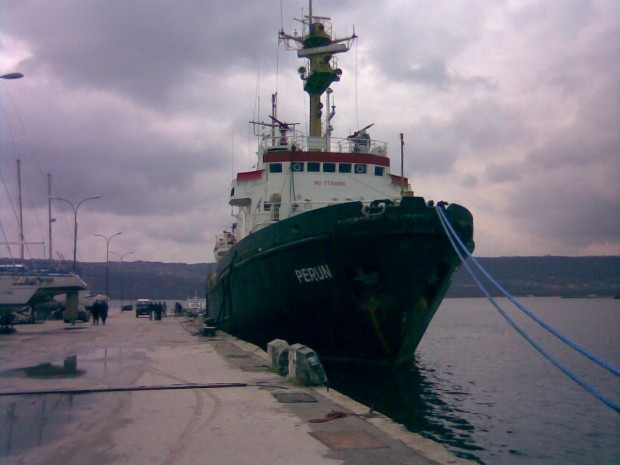15.05.2015
BUSINESSEUROPE wants an EU maritime policy that develops more attractive, safe, efficient and sustainable quality shipping, further opens maritime markets and ensures access to cargoes without restraints.
To achieve that, we believe the following elements should be included in a renewed EU strategy for maritime policy:
-
Implement and enforce what has been agreed: BUSINESSEUROPE generally supports the current approach of the European Commission on maritime policy which was outlined in its Communication of January 2009 and of May 2013, which reviews the European port policy and presents additional actions to further unlock the potential of EU ports. The Commission rightly puts more focus on the connection of TEN-T ports with railway lines, roads, and where possible, inland waterways, in particular in the governance of corridors. Yet, we would like to see faster quality implementation of already agreed EU initiatives. Strong enforcement of existing rules is fundamental to create fair competition and foster innovation in a stable and predictable framework that triggers investment.
-
Reduce administrative burdens: It is also important to reduce administrative burdens in the maritime sector, for instance in relation to customs. For short sea shipping, it is important to continue to simplify and remove administrative barriers also in terms of duplicated cross-border controls and the lack of harmonised documents. Therefore, we still strongly support the development of a “Blue Belt” in the seas around Europe to simplify the formalities for ships travelling between EU ports. We regret that this proposal has already been blocked for many months and ask the Commission to come with a renewed proposal to make progress in this respect. We moreover regret that the divergent implementation of the Reporting Formalities Directive currently taking place will result in the opposite of its initial aim of simplification. With the same aim, we support the establishing of common EU rules on conditions and procedures for granting pilot exemption certificates for ships frequently using the same ports.
- Advocate Europe’s leading role in maritime transport: Europe has the world’s largest shipping fleet, directly employing some 300.000 seafarers on board merchant vessels and another 3 million in related jobs. More than 80.000 merchant ships call at European ports every year. The marine and maritime sector currently represents 5.4 million jobs and a gross added value of almost €500 billion a year. 75% of the EU’s imports and exports, and 37% of the internal trade transits through seaports. Shipping is essential for the import of energy and raw materials.
Promoting the sector will trigger investment, attract students and workers and ensure the right political momentum to modernise the sector to make it more competitive.
-
Foster innovation: It is important to maintain a stable and innovation-friendly regulatory framework securing the competitiveness of national fleets. A key aspect is to provide the legal certainty needed to trigger investment in innovation. Quality implementation and strong enforcement of agreed rules is key in this respect.
-
Build on skilled people: Maritime skills and know-how are a key element of the competitiveness of the sector. Therefore, the EU should help to promote training opportunities and maritime careers. Already now there are more than 38.000 students / cadets with great potential studying in maritime academies in Europe, but in the light of the expected increase in demand in the next decades, this figure must go up.
-
Take a balanced approach towards more sustainable maritime services: Regarding sulphur content in maritime fuels and reduction of emissions, BUSINESSEUROPE supports the objective and industry is making significant efforts to reduce emission from shipping. However, the right balance between environmental and economic benefits needs to be struck. In the current economic situation, the EU should avoid to confront industries with huge new challenges, weakening their competitiveness. It is essential that the EU aims to find global solutions that provide a level-playing field for European industries in the international arena and does not accept regionally discriminatory standards.
-
Create an international level playing-field: The shipping industry is facing increasingly fierce competition from third countries, especially by shipping centres in Asia. To be more competitive, we need to remove administrative burdens, streamline procedures, foster innovation and trigger investment. It also entails striving for balanced environmental requirements. The EU and its Member States also need to intensify efforts at bilateral, plurilateral and international level to ensure open access to markets and further liberalise trade in maritime services. This should be done through ambitious trade agreements. BUSINESSEUROPE therefore calls to conclude an ambitious chapter on shipping in the current Trade in Services Agreement (TiSa) and Transatlantic Trade and Investment Partnership (TTIP) negotiations. EU rules for international shipping should remain fully consistent with International Maritime Organization (IMO) standards and requirements to avoid distortions of competition. A reliable regulatory framework will give the European shipping industry the planning certainty it needs.
- Benefit from the digital revolution: Further digitalisation linked to administrative simplification and streamlining of operational procedures will greatly benefit maritime transport, for instance by promoting initiatives such as the Blue Belt (or similar initiatives with the same aim) and related e-Maritime and e-Freight services. There is still untapped potential in freight and container tracking. Technical possibilities such as GPS and RFID are only used to a restricted extent here. A dynamic tracking and tracing system (RIS) with Europe-wide technical standards would allow for a better management of cargo flows and increase the transparency and response possibilities of sea shippers.






